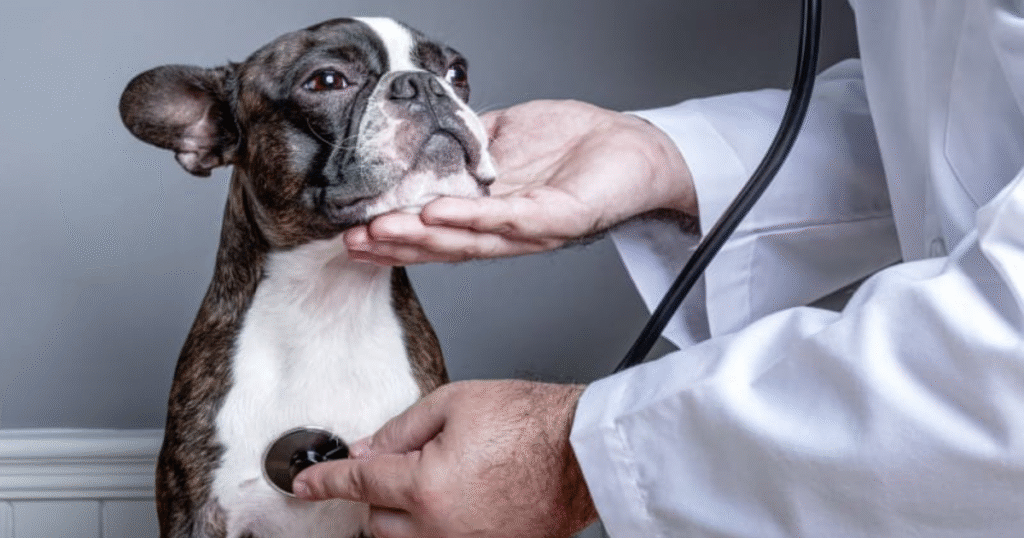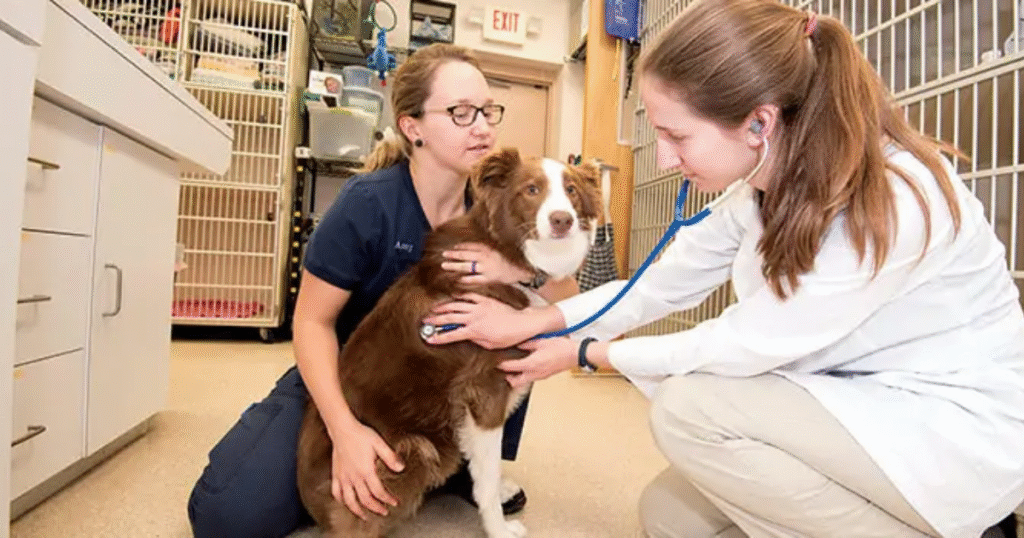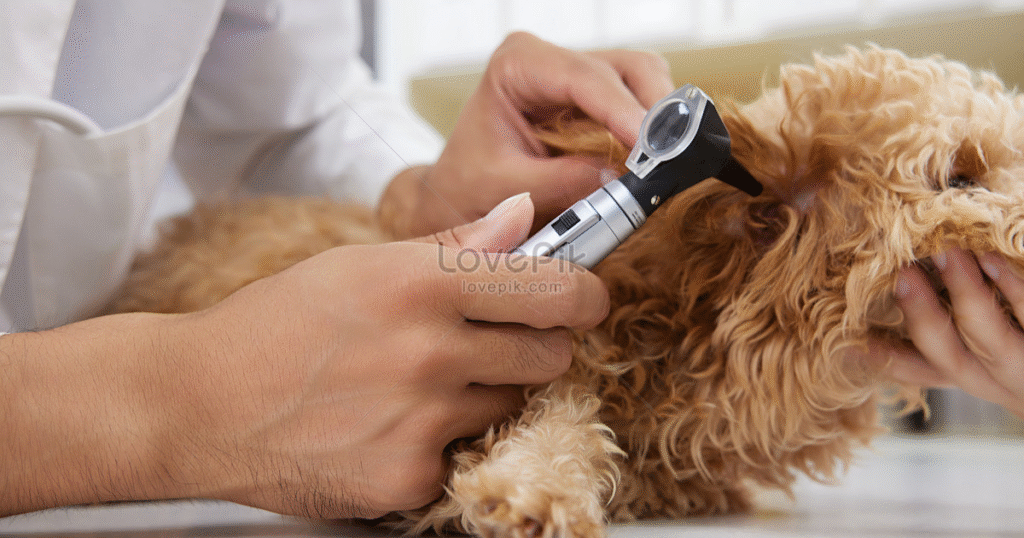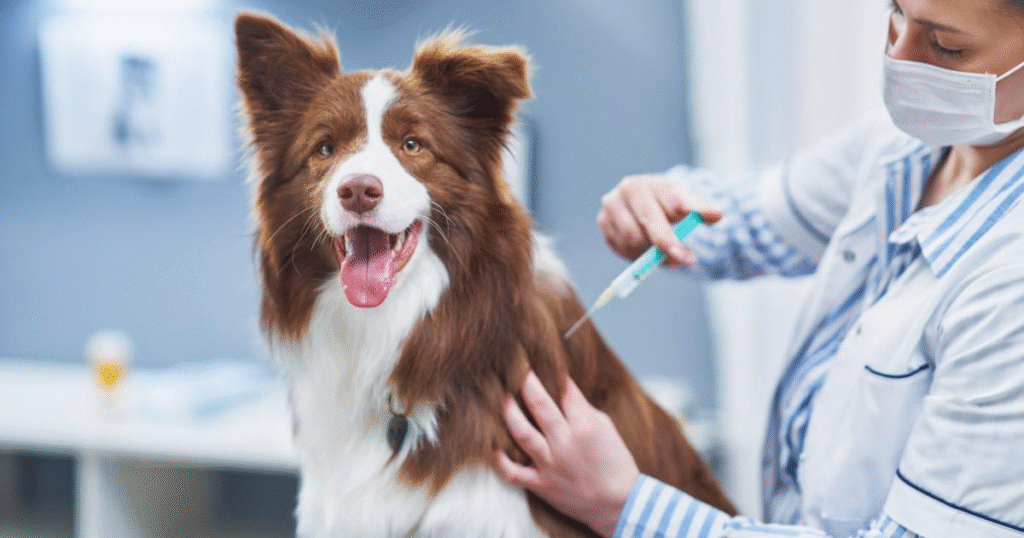
Introduction
An fascinating and emotionally uplifting event is bringing home a puppy. Scheduling their first puppy veterinarian appointment is one of the most crucial steps you can do to guarantee your furry buddy long-term health and happiness as you start this new road with him.
For many first-time pet parents, this first visit could seem quite taxing. What should you bring; what will the vet do? How can you ready your puppy for the visit? This first check-up builds a trusting relationship with your veterinarian and sets the groundwork for your dog’s lifelong health.
We will guide you through everything you need to know about a puppy’s first vet visit — from preparation ideas to the physical exam, lab testing, and immunizations — so you and your dog can feel confident and comfortable every step of the way in this book.
Related: How to Groom Your Dog at Home
How to Prepare for Your Puppy’s First Vet Visit

Getting ready for your dog’s first veterinary appointment can help to make the experience more easy and less stressful for either of you.
- Gather Important Documents: Bring any medical records, immunization history, or documentation you have from the breeder, shelter, or rescue. This aids the veterinarian in knowing the health history of your puppy.
- Make a List of Questions or Concerns: List any questions regarding your puppy’s behavior, diet, sleeping patterns, or health concerns that you wish to go over during the appointment.
- Bring Comfort Items: Your puppy’s stress in a strange place might be significantly lessened by a beloved toy or blanket.
- Use a Proper Carrier or Leash:For little puppies, use a well-ventilated pet carrier; for others, use a proper carrier or leash. Larger dogs require a reliable leash and harness to guarantee safe travel.
- Avoid Feeding Right Before the Visit: Skip feeding right before the vet appointment, particularly if procedures are planned.
- Practice Handling at Home: To help lower anxiety during the exam, gently acclimate your puppy to being touched on paws, ears, and mouth.
- Arrive Early: Arriving 10 to 15 minutes early lets your puppy get settled and provides time for documents.
Arriving at the Vet
Your behavior at the clinic affects your puppy’s comfort:
- Stay Calm and Confident: Dogs detect your emotions, therefore staying relaxed will help your puppy to remain calm.
- Check In at the Front Desk: Tell the front desk personnel it’s your dog’s first visit and present any documents.
- Keep Your Puppy Secure: Even if your dog is quite quiet, use a leash or carrier to keep him safe.
- Be Patient in the Waiting Area: Be calm in the waiting room: Help your puppy rest among fresh sights and smells by gentle petting and goodies.
- Watch for stress signs: panting, whimpering, pacing, or trembling indicate anxiety; gently soothe your dog.
Physical Exam

The vet will perform a thorough physical exam to check your puppy’s overall health:
- General Appearance Check: Behavior, coat quality, weight, and posture.
- Temperature, Pulse, and Respiration:Vital signs are measured to guarantee health; they include temperature, pulse, and respiration.
- Eyes, Ears, Nose, and Mouth:Checked for discharge, infections, or dental problems: eyes, ears, nose, mouth.
- Skin and Coat: Look for dryness, bugs, rashes, or lumps in skin and coat.
- Heart and Lungs:Stethoscope used to detect irregularities or abnormal sounds.
- Abdomen and Organs: Checked for swelling or pain in liver, kidneys, and bladder
- Joints and Muscles:Mobility assessed by flexing legs and feeling for stiffness.
- Reproductive Health:Examined if not spayed/neutered, with sterilization options discussed.
Lab Tests
Tests for intestinal parasites such roundworms and hookworms in fecal examinations.
- Fecal Exam: Urinalysis examines kidney function, infections, diabetes, or dehydration.
- Urinalysis: Complete blood count and chemistry panel evaluate organ health and help identify infections.
- Blood Tests: Complete Blood Count (CBC) and chemistry panel assess organ health and detect infections.
- Heartworm Test: Recommended in areas where heartworm is prevalent.
- Tick-Borne Disease Screening: Tests for diseases like Lyme disease in tick-prone regions.
Related: Top 10 Best Dog Breeds for Families in 2025
Vaccinations: Core and Non-Core Vaccines

Vaccinations guard your puppy from major illnesses. Your veterinarian will suggest vaccines depending on the age, health, and lifestyle of your puppy.
Core Vaccines (Recommended for all puppies)
Rabies: Legally compulsory in many areas, rabies protects against a lethal virus.
Distemper: Distemper is a viral disease of nervous and respiratory systems.
Parvovirus:Parvovirus often causes lethal diarrhea and vomiting in puppies.
Adenovirus (Canine Hepatitis): Adenovirus (Canine Hepatitis) shields eyes, kidneys, and liver.
Often these are combined as the DHPP vaccine.
Non-Core Vaccines (Based on lifestyle and risk)
- Bordetella (Kennel Cough):For dogs using boarding, grooming, or day-care, Bordetella is kennel cough.
- Leptospirosis:Leptospirosis is a bacterial infection caused by contaminated water.
- Lyme Disease: Dogs in tick-dense regions: Lyme disease.
- Canine Influenza: Canine influenza is a respiratory disease disseminating in dog facilities requiring close contact.
- Coronavirus (Canine):Less frequently administered, coronavirus (canine) guards against gastrointestinal problems.
Usually beginning at 6 to 8 weeks old, vaccinations continue until 16 to 20 weeks with later boosters.
Conclusion
The beginning of a lifelong cooperation to keep your dog happy and healthy is your puppy’s first veterinary visit. Through good preparation, knowing what to expect throughout the test, and following through with suggested tests and immunizations, you are creating a solid basis for their future health.
Keep in mind that your veterinarian is your greatest partner in puppy care; do not hold back from asking questions or expressing any worries. Given the proper care and focus, your new puppy will become a happy, healthy friend.
Frequently Asked Questions (FAQs)
Q1: When should I take my puppy to the veterinarian for the first time?
Ideally, bring your puppy in within a few days after coming home or it should be 6-8 weeks old for check-up and first vaccinations.
Q2: What do I take with me when visiting the vet on its very first visit?
Should bring medical records(if there are any), questions list, leash or carrier, comfort items, such as a favorite toy.
Q3: How much would a first visit to the veterinarian cost?
Cost variation between location and clinic; an average of 50-150 dollars is expected for simple examination and vaccines.
Q4: Are these vaccines mandatory for every puppy?
All puppies require core vaccines; non-core vaccines depend on the puppy’s lifestyle and exposure risk.
Q5: How often shall I take my puppy after the first appointment for a check-up at the vet?
Follow the vaccination plan of your veterinarian, usually every 3-4 weeks until 16-20 weeks, then annual check-ups.
Read More Blog: The Best Parrot Diet (and Toxic Foods to Avoid)
2 Responses